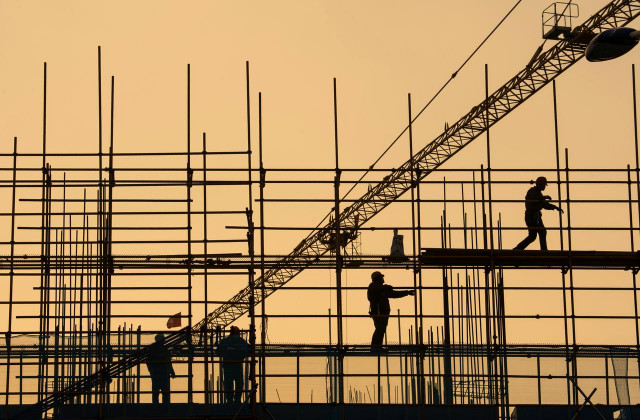'Non-transparent' building law tweaks worry experts
Demand halt to unregulated commercialisation, call for planning that centres people, sustainability, and inclusivity

Urban planners, architects, and civil society activists expressed serious concerns over recent, non-consultative amendments to the Karachi Building and Town Planning Regulations 2002.
The concerns were raised during a consultation titled "Amendments to the Karachi Building and Town Planning Regulations 2002, and the Future of the City", held at the Karachi Press Club. The event was jointly organised by The Knowledge Forum, Shehri-CBE, and the Urban Resource Centre.
Renowned architect and town planner Arif Hasan stressed the need for comprehensive urban land reforms in Sindh. He underscored the lack of affordable housing options for low-income groups, forcing many to settle in informal housing or katchi abadis. "Governments must ensure access to planned and affordable housing," he added. Hasan recommended land ceiling laws to prevent excessive land ownership and promote equitable land distribution. He criticised unregulated commercialisation in residential areas such as Block 6, warning that commercial activities without planning would deepen urban dysfunction. "Urban planning must be rooted in long-term, integrated strategies," he added.
Ahmber Alibhai of Shehri-CBE slammed the Sindh Building Control Authority (SBCA) for centralising powers and implementing amendments to the Sindh Building Control Ordinance 1979 and related bylaws without public consultation. She added that changes in land use, building heights, and parking regulations were being made without transparency. "There is no consistent planning body for Karachi despite its growing population," she said, lamenting that the metropolis had become "a chessboard controlled by powerful interests."
Architect Fazal Noor echoed similar concerns, warning against the regularisation of zoning violations. He called for planning principles based on population density and environmental factors, rather than outdated land area metrics. "Urban development must consider smog, noise, sewage, and drainage," he said.
Legal expert Abeera Ashfaq spoke about the lack of mechanisms to support people displaced by illegal or unregulated development. "Affected communities are left without redress, while bureaucratic control increasingly serves business interests over public welfare," she said.
Former CPLC chief Jameel Yousuf recalled the 1995 Neighbourhood Watch initiative, which successfully managed civic services in specific areas. He urged the Karachi Metropolitan Corporation (KMC) to assume control over housing societies that collect resident funds and suggested confiscating such funds in cases of mismanagement.
The experts unanimously demanded a halt to unregulated commercialisation, calling for transparent, participatory planning that centres people, sustainability, and inclusivity.
Other participants included Zahid Farooque of Urban Resource Centre, Chandan Mali of National Commission for Human Rights, advocate Shazia Nizamani, Saeed Baloch and Ayoub Shan of Pakistan Fisherfolk Forum, and researcher Sadiya Siddiqui.





















COMMENTS
Comments are moderated and generally will be posted if they are on-topic and not abusive.
For more information, please see our Comments FAQ